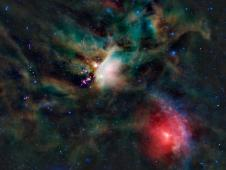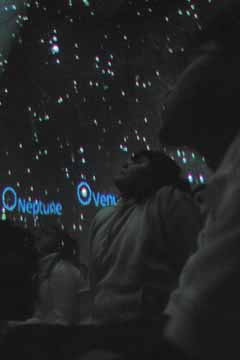 As we march inexorably toward the first days of a new school year, many of us are faced with searching out ideas for school assemblies and shows to bolster the curriculum while providing a welcome break from class time for students and teachers alike. Moreover, in these days of rising costs and shrinking budgets, field trips are more and more a rapidly fading memory for many schools. So the search is on for the best possible use of what limited funds remain in order to provide students with the best bang for the buck.
As we march inexorably toward the first days of a new school year, many of us are faced with searching out ideas for school assemblies and shows to bolster the curriculum while providing a welcome break from class time for students and teachers alike. Moreover, in these days of rising costs and shrinking budgets, field trips are more and more a rapidly fading memory for many schools. So the search is on for the best possible use of what limited funds remain in order to provide students with the best bang for the buck.
Of course, many options are available. But, sadly, not all are created equal. Some science programs are well crafted science lessons with curriculum based content bolstered by entertaining delivery and dazzling demonstrations of real science. Others are little more than magic acts or yo-yo shows with high entertainment values (sometimes) but little in real science content beyond some small surface decoration. The same holds true for historical presentations. One Abraham Lincoln assembly program may be an in depth impersonation by a skilled actor steeped in the intricate details of the life of our most famous president and fully able to mesmerize an audience while another may be little more than a costume from a halloween parade garbing a song and dance man with little to offer besides a good singing voice (sometimes) and a rudimentary knowledge of the man himself.
And this is also true for mobile planetariums. In the world of school assemblies, there are mobile planetariums and then there are mobile planetariums, and in this case, most certainly, not all domes are created equally.
Mobile Ed is one of the oldest and largest companies in the country producing and marketing high quality educational assemblies to schools across the country. Based in the midwest, this Michigan school assembly company has deep roots in the midwest states of Ohio, Indiana and Illinois, but ranges far afield, not just to schools in nearby states such as Pennsylvania and Kentucky, but from Missouri to Maine and from California to Connecticut and just about everywhere in between. We take great pride in the programs we have created and which we market, and none more so than in our mobile planetarium, the Sky Dome.
 Mobile Planetariums have been around for a long time. Originally pioneered by a company called Star Lab, the concept has been a hit from the start. However, there were and remain drawbacks to the original Star Lab design. The original dome (still used by many companies) would hold no more than thirty to thirty five occupants at a time. Basically, it was designed for a classroom. With that small an audience, it would take an entire week or more to allow an entire average sized school to view the program. But that was just the beginning of the difficulty. The projector itself, the heart of any mobile or fixed planetarium, was an analog system, and in reality, was comprised of little more than a cylinder of film placed over a light bulb. Effective to a degree, perhaps, but severely limited in this modern era of computer graphics.
Mobile Planetariums have been around for a long time. Originally pioneered by a company called Star Lab, the concept has been a hit from the start. However, there were and remain drawbacks to the original Star Lab design. The original dome (still used by many companies) would hold no more than thirty to thirty five occupants at a time. Basically, it was designed for a classroom. With that small an audience, it would take an entire week or more to allow an entire average sized school to view the program. But that was just the beginning of the difficulty. The projector itself, the heart of any mobile or fixed planetarium, was an analog system, and in reality, was comprised of little more than a cylinder of film placed over a light bulb. Effective to a degree, perhaps, but severely limited in this modern era of computer graphics.
Our Sky Dome mobile planetarium is a horse of a different color. With a dome nearly thirty feet in diameter, we can easily accommodate an elementary school with an enrollment of up to five hundred all in one day! And, far from the old analog projector, we use a high tech digital projector which utilizes computer generated graphics to dazzle the audience with all manner of special effects, completely beyond the capabilities of the old Star Lab system.
Now, to be fair, there is also another type of dome program touring around to various states, which is not a Star Lab type system. Rather, this other dome program uses a larger enclosure and offers schools a choice of programs to view. However, once again, there are drawbacks! Unlike a real planetarium, which projects the actual stars on the internal surface of the dome, this other theatrical dome program uses prerecorded movies. Movies of a very well produced quality, we are assured, but movies, none the less. In essence, a technician makes sure the audience is seated and then turns on a canned film presentation. With Sky Dome, the presentation is produced live with every performance, by a presenter who is interacting with the audience and adapting readily to the needs of the students and teachers in that audience, in real time.
So, not all school assemblies, and certainly not all mobile dome planetarium school shows are created equal. This is not in any way to disparage other programs, but rather to aid you in making an informed decision about how best to use your funds, and to be certain you are getting the program that you really want. To quote the ads from a certain clothing store, “an educated consumer is our best customer”.:-)
Geoff Beauchamp is the Regional Manager of Mobile Ed Productions where "Education Through Entertainment" has been the guiding principal since 1979. Mobile Ed Productions produces and markets quality educational school assembly programs in the fields of science, history, writing, astronomy, natural science, mathematics, character issues and a variety of other curriculum based areas. In addition, Mr. Beauchamp is a professional actor with 30 years of experience in film, television and on stage. He created and still performs occasionally in Mobile Ed's THE LIVING LINCOLN.






